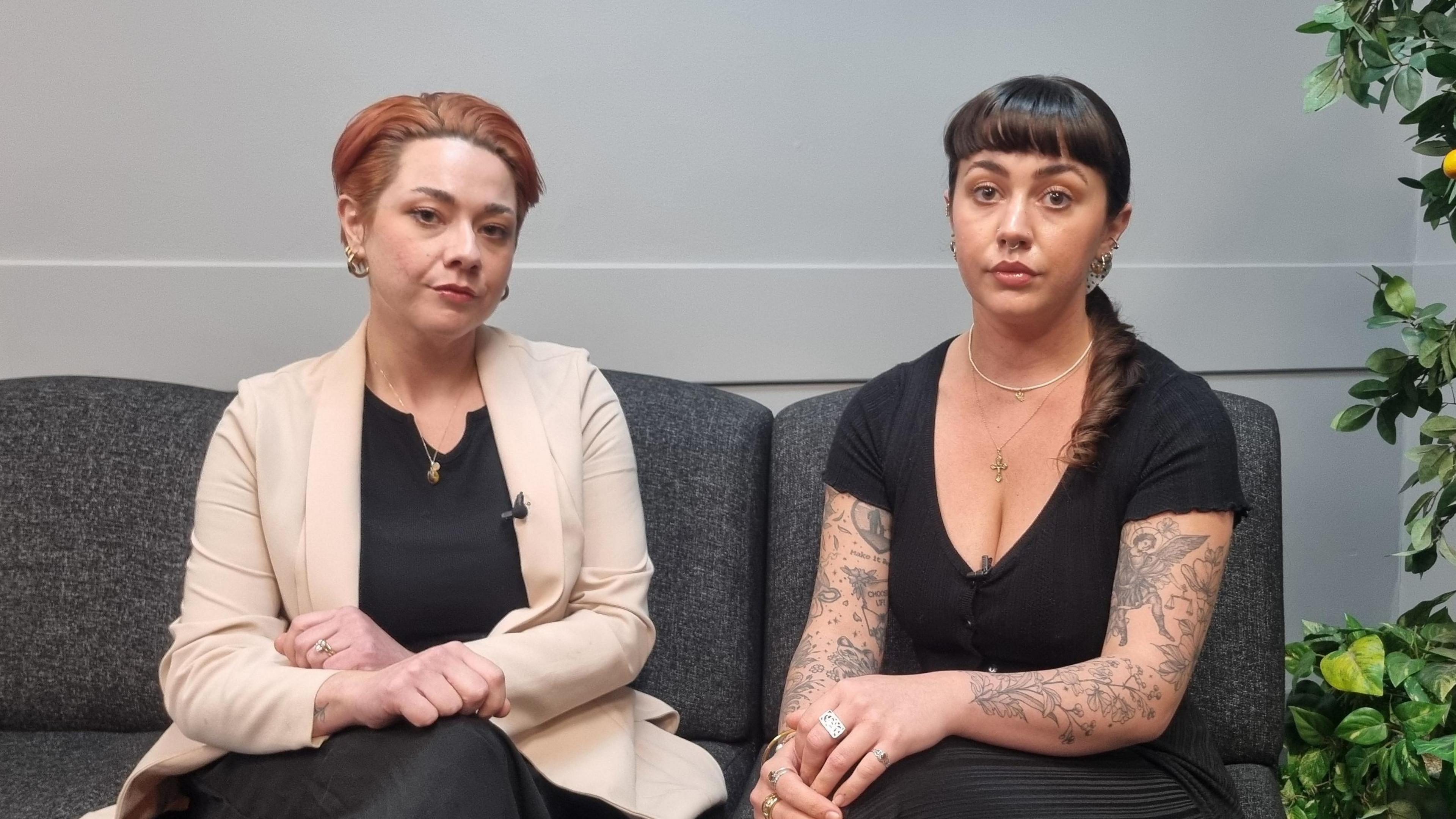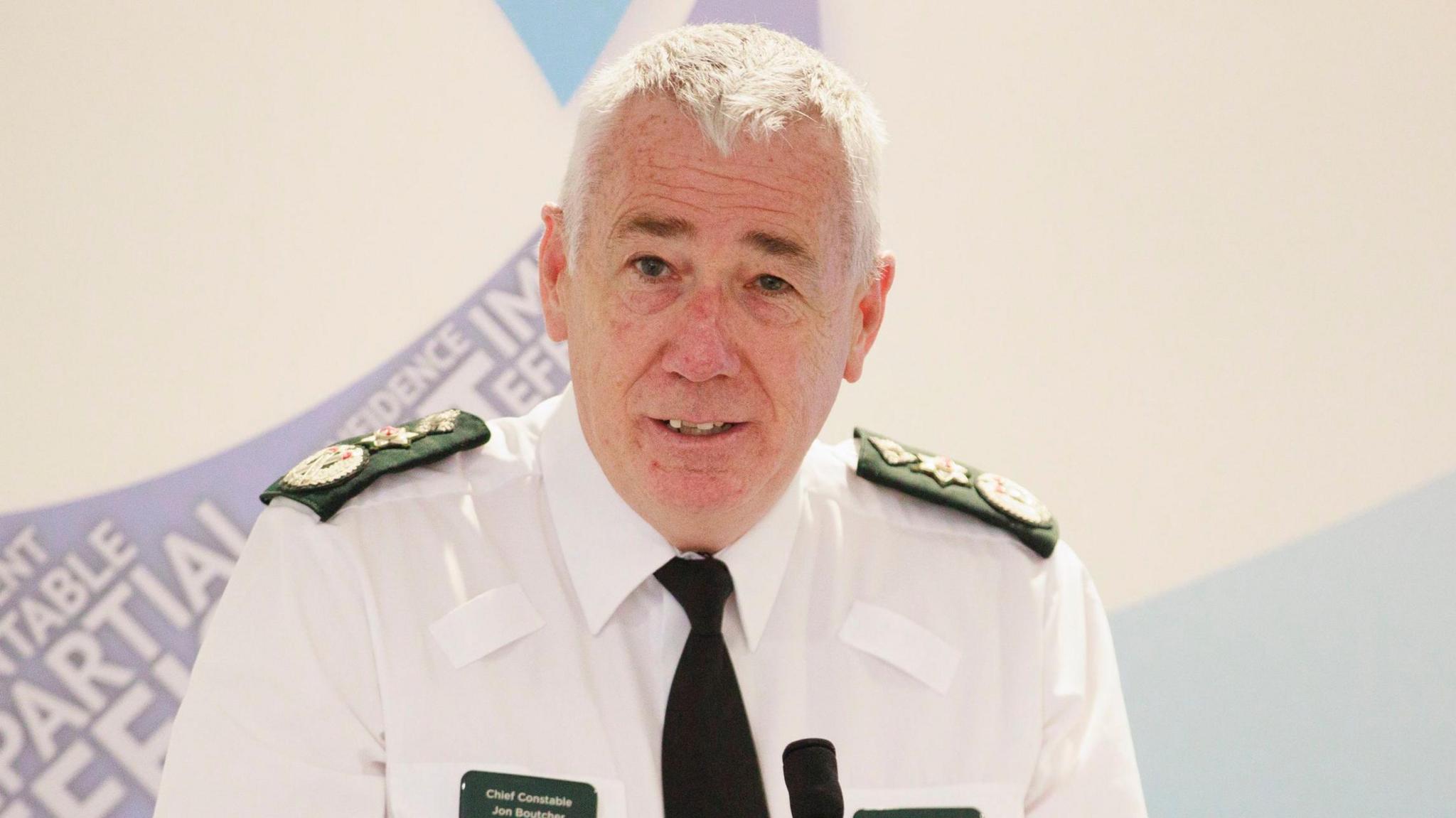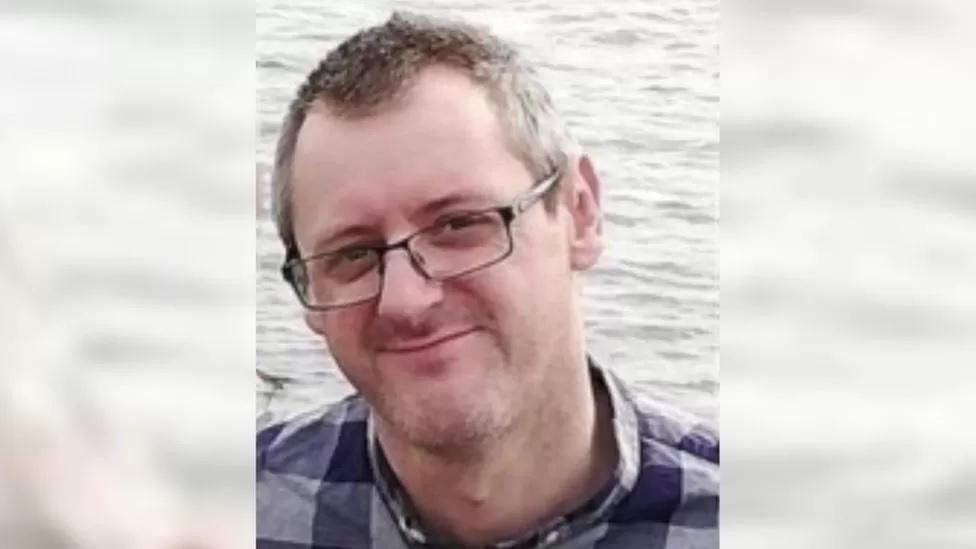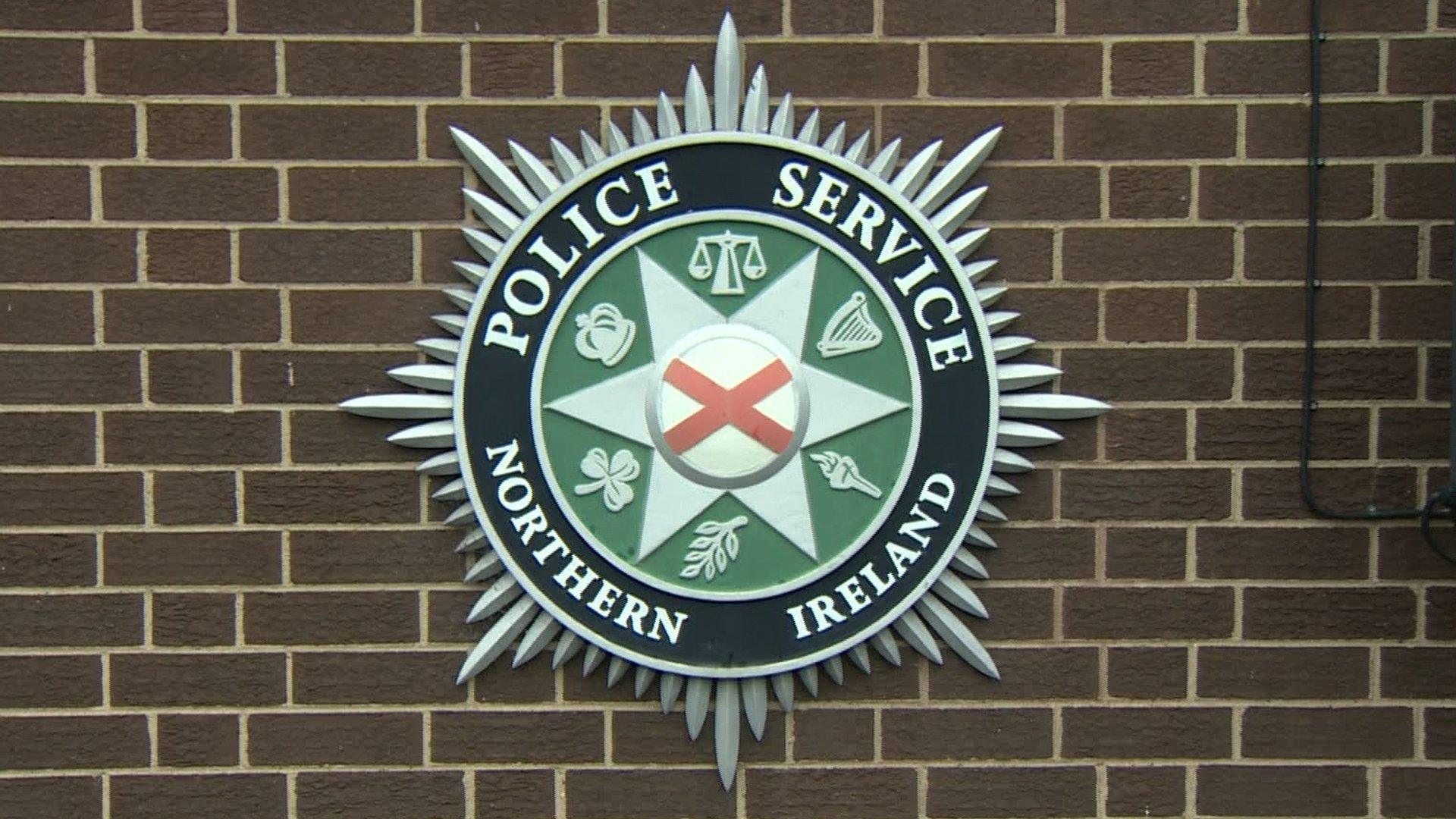PSNI mugshot policy protects criminals, says victim

Liz Wilson and Catherine McSherry said the PSNI changing its policy was a welcome step
- Published
The victim of a man convicted of voyeurism has said criminals are being protected by the Police Service of Northern Ireland (PSNI) not releasing mugshots.
The chief constable has said the policy will be changed but there is no timescale for when this will happen.
Catherine McSherry said victims felt "ignored and not taken seriously" when no mugshot was issued.
She welcomed the force's plans to change its policy on custody images and said it was a "positive step".
Unlike many police forces in the UK, the PSNI does not routinely issue mugshots of serious offenders after sentencing.
Chief Constable Jon Boutcher has said the PSNI will begin releasing the images "in line with the custom and practice elsewhere".
The PSNI said the "logistics of how we do that are now being worked through".
Catherine's step-brother Christopher was found guilty of six charges of voyeurism and one of unauthorised computer access.
The 35-year-old, from Portadown in County Armagh, was sentenced to 100 hours of community service, 18 months' probation and a sex offences prevention order.
The judge said it was one of the worst cases of voyeurism seen by the court.
Catherine said it was important for victims that mugshots began being issued.
"I think it can be very validating for victims to have an actual mugshot taken of their perpetrator rather than just smiling photographs of them in their day-to-day life," she said.
"I think it stops people being desensitised to the fact that this was a crime that was committed."
Her sister, Liz Wilson, described the lack of custody photos as "a further failure" towards victims.
"Why are the PSNI protecting the criminal more than the victim? The whole system feels to me set up to protect perpetrators and not victims," she said.
In April, the PSNI announced it was reviewing its policy.
It came after families whose loved ones were killed by drunk drivers questioned why police would not release photos of the offenders.
Internal emails seen by BBC News NI showed confusion among PSNI staff over the policy.

Mr Boutcher said logistics to facilitate publishing mugshots were being looked at
What is the PSNI mugshot policy?
Mr Boutcher was asked for an update on the review at a recent Policing Board meeting.
He he said he had reviewed the policy.
"I have reviewed it. In short, we will be publishing photographs of people convicted of certain serious crimes where there is a policing purpose to do that," Mr Boutcher said.
Catherine said the change was "definitely positive" and "a long time coming".
"I think I speak for many other victims when I say that it would help massively, not just sexual abuse cases - any kind of criminal activity," she added.
Former senior PSNI officer Jon Burrows also welcomed the move as a "positive, albeit long overdue step".
He said he hoped the change would bring the PSNI "into line with UK-wide practice".
"It is vital that justice is seen to be done and releasing the mugshots of those convicted of certain crimes will improve confidence in the justice system, encourage victims to come forward and send a clear message to perpetrators that actions have consequences," he said.
"Given the epidemic of violence against women and girls, it is really important that those convicted of such crimes are included in the release of post conviction photographs."
In a statement a PSNI spokeswoman said that the police "will be publishing photographs of people convicted of certain serious crimes where there is a policing purpose to do that".
She emphasised logistics were being worked through but there was "no definite timeline for this at present".
- Published6 December 2023

- Published4 April 2024
